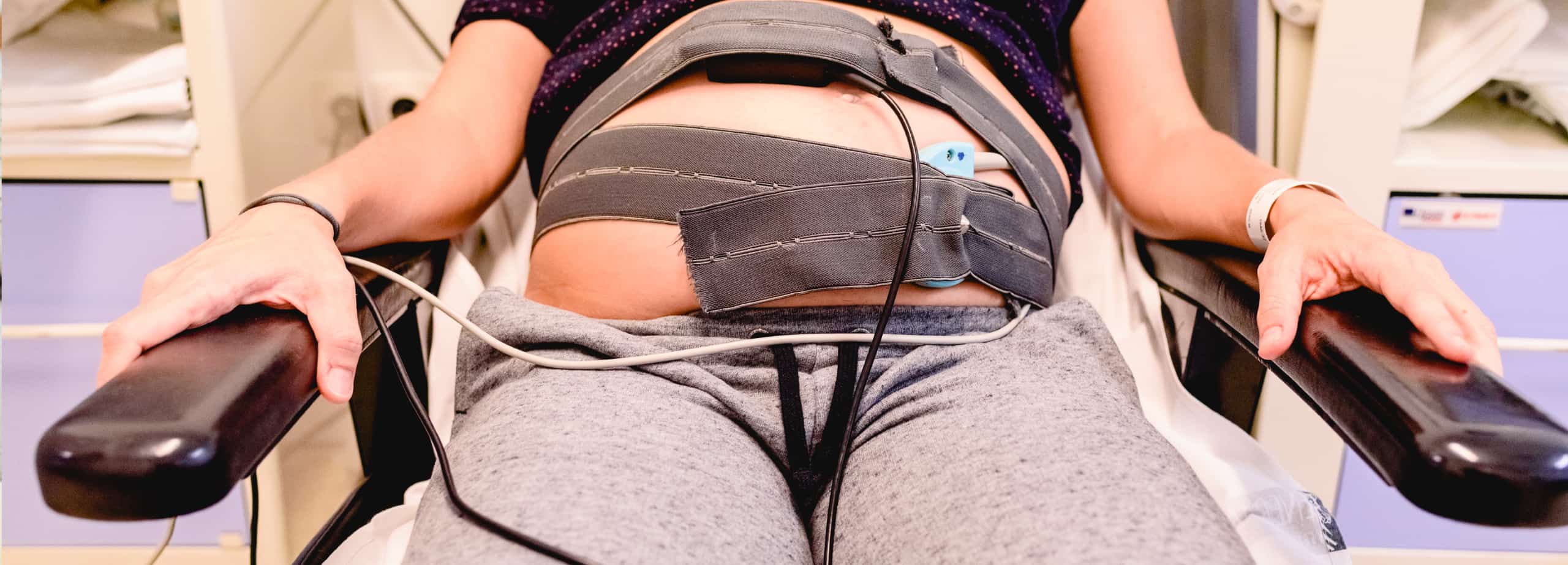
Peel Maternity Hospital for Mandurah obstetrics
Your delivery at Peel Health Campus: what to expect?
At Peel Health Campus in Mandurah, you have a choice between public and private maternity services.
Private maternity ward at Peel Health Campus
Admission to Peel Health campus as a private patient means that you will have your own room and your partner can stay with you overnight if they choose to do so. All meals are provided for you and also for your partner if they are staying with you.
The private wing of the maternity ward has its own nursery/patient lounge area and an outside, fully enclosed seating area where you can go with visitors and your baby.

Dr Peter Kell
GP Obstetrician Mandurah
Public maternity ward at Peel Health Campus
If you choose to go to Peel Health Campus as a public patient then you will be in a shared 2 bedroom and your partner is not allowed to stay with you overnight unless you are in active labour. All of your meals are provided but meals are not provided for your partner.
The doctors at Nest Medical are on a roster to be on call for public patients so it will be one of them who attends your birth and follows up with you on the ward during your hospital stay.

Mandurah obstetrics and women’s health services
Why Nest Medical for maternity services?
The big benefit of choosing Nest Medical for your maternity services in Mandurah is that you have more choices, even as a public patient.
If you do not have private health insurance at the time of your pregnancy, you can still get a private style level of antenatal care, to then be admitted to the hospital as a public patient.
If you do have private health cover, and you are admitted as a private patient, you have the almost complete guarantee of seeing your chosen doctor for your birth, as well as for the follow-up during your hospital stay.
Continuity in care in pregnancy is very important. It has shown to have many benefits, and that is why it is our priority when you work with us at Nest Medical for maternity care.
Women who don’t want to choose a specific doctor to look after them or who can’t afford this option still benefit from coming to Nest Medical for maternity care. In that case, our highly skilled endorsed midwives will see you, and you have the reassurance of GP obstetrician backup.

Best options to give birth
Understanding your choices for child delivery
Birth can be smooth or it can be complicated. Ideally, every woman could deliver her baby vaginally. It would happen with minimal blood loss, and minimal or no genital tract injuries. But in reality, it doesn’t always happen like that.
The statistics show that up to 1 in 3 women will need a caesarean section to safely deliver their first baby.
Some of the other stats worth looking at in regards to giving birth:
- 25-35% chance of needing assistance with a vacuum or forceps in vaginal delivery.
- A 40 to 50% chance of vaginal or perineal tears requiring suturing.
- A 4 to 5% risk of tears involving the anal sphincter with an associated risk of faecal incontinence.
Most of these complications are entirely unpredictable when you go into labour. If you deliver your first baby without any of these complications, you have about 95% chance of uncomplicated deliveries for future babies. The first one is always far more unpredictable!
It is said that the more relaxed and confident you are as a woman, the more likely you will deliver your baby without complications. But it is also known that nothing we will do actually guarantees such an outcome. There is a lot of mythology around beliefs and practices that will “ensure” all goes the way we want, but not much good evidence for any of it.
Hypnobirthing, birth coaches or ‘doulas’ do help some women. But it all depends on personalities and personal beliefs. At Nest Medical, we do our best to support you in whatever helps you to reach a calm and confident state. We know this will give you the best chance of achieving the birth experience you want.
At the other end of the spectrum of a birth that is as natural as possible, you may not want a vaginal birth and prefer an elective caesarean section. In that case, we counsel you as to the pros and cons of your decision. If this is what you really want, after considering all options, we will support this also.
Essentially, there is no “best choice” for your mode of delivery, it depends on many individual factors.
Some women like to write a birth plan as they feel this helps to identify what they do or don’t want to happen during their birth. The problem with birth plans is that, because birth is so unpredictable, it often doesn’t go to plan. At Nest Medical we offer all women a birth management appointment with one of our endorsed midwives. The purpose of this appointment is to discuss all things labour and birth which helps you and your support person to be aware of your choices regarding labour and birth. If and when things arise, you will be able to make an informed decision regarding your care.
Our GP obstetricians prefer a vaginal birth where it is safe to do so. But regardless of the birth method, our focus is on a healthy mum and a healthy baby. Sometimes people get a bit caught up in how a baby is born, and they lose sight of this crucial point: the health of two people. It is important that women walk away from their birth experience feeling like it was a wonderful experience, not traumatised by it.
Emergency c-section reasons
I’m anxious about emergency c-sections. When do you make that call?
The decision to perform an emergency c-section may either be due to complications with the baby or complications with you as a mum. For example:
- During labour, your contractions may not be effective for some reason and your cervix just doesn’t dilate as it needs to.
- Sometimes women develop high blood pressure, high temperatures or abnormal bleeding and it may be considered unsafe to allow the labour to continue.
- The baby may show signs of distress or the baby may get stuck in the pelvis and not be able to fit out even when you reach full cervical dilation.
These are just some of the many reasons that may lead to an emergency c-section.
VBAC or not?
I have had a previous caesarean but want to deliver vaginally now. Can I?
Vaginal birth after caesarean or a VBAC is a well-known birthing method that we offer here at Nest Medical.
If you are keen to have a VBAC, we first discuss your last labour and how it led to an emergency c-section. In some situations, it may not be advisable to attempt a VBAC. In other cases, it comes up as a very reasonable thing to do. Together with you and your support person, we discuss the backup plan in case you don’t go into spontaneous labour by a certain date.
The questions in this situation are:
- Are you going to have a c-section?
- Will you try an induction of labour?
We discuss the pros and cons, so you can make a well-informed decision.
If you are not happy with the prospect of a VBAC, we can book an elective c-section for around 39 weeks.
Newborn immunisations
Which immunisations will my newborn get?
After the birth of your baby, it is routine for him or her to receive an injection of Vitamin K and Hepatitis B vaccination. Vitamin K is needed to help the blood clot and prevent abnormal bleeding – babies are often born with low amounts of Vitamin K. It can also be given orally and babies need 3 oral doses if they don’t have the injection.
Hepatitis B is a viral illness that attacks the liver and can cause serious illness. Hepatitis B is spread by contact with infected blood or body fluids.
When your baby is between 6-8 weeks old they receive the first of their routine childhood immunisations which protects them against a number of life-threatening illnesses.
For a complete list of childhood immunisations, please check the WA Immunisation Schedule.